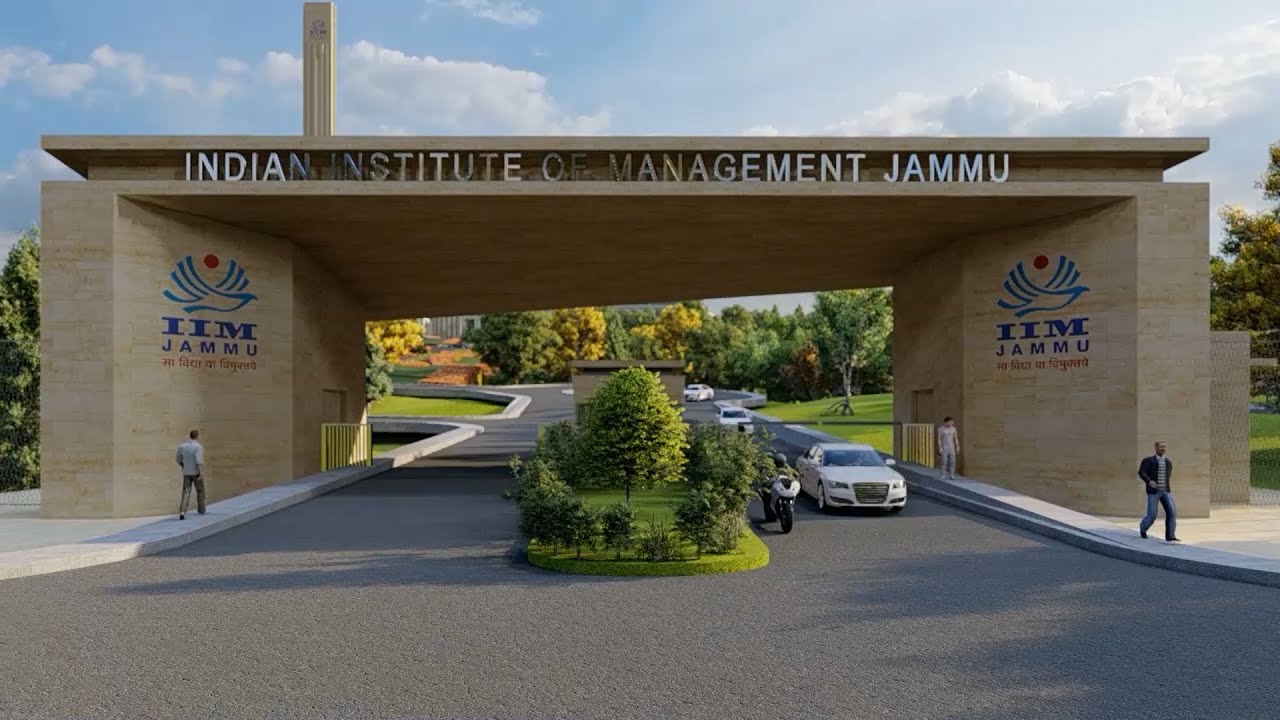
IIM Jammu successfully inaugurates the third Academic Module of MGNF
- Campus Updates
- 01 Aug, 2022
- 1395
IIM Jammu successfully inaugurated the third academic module of its ongoing Mahatma Gandhi National fellowship academic (MGNF) module of Sankalp under the Ministry of Skill Development and Entrepreneurship (MSDE), Govt. of India on 18th July 2022. The Academic Modules I and II were organized and successfully completed by IIM Jammu from 25th Oct-6th Nov 2021 and 7th-18th March 2022 respectively. The fellows joined their respective districts in J & K, West Bengal, Ladakh, Chandigarh, and Puducherry for District Immersion Program wherein the fellows worked closely with the district administration for enhancing their skills and promoting economic development as a part of the District Immersion Module. The inaugural ceremony commenced with the lamp-lighting ceremony.
The Program was inaugurated by Prof. B. S. Sahay, Director, IIM Jammu in the presence of Prof. Jabir Ali, Dean Academics, IIM Jammu, and Program Director, MGNF, Dr. Muqbil Burhan, Program Director, MGNF joining through virtual mode and Dr. Avinash Kumar, Co-Program Director, MGNF. The event witnessed the presence of faculty members, MGNF team, and students. The third academic module of the program spans twelve days from 18th July to 30th July 2022 where learning and application will go simultaneously.
Prof. Jabir Ali, Dean Academics, IIM Jammu, and Program Director, MGNF welcomed the participants and briefed the fellows about the academic module III course structure, and highlights of the previous academic modules. He also mentioned the contributions of fellows despite the various challenges faced. He then invited suggestions from the participants for evaluating them during the completion of the course module. He gave an overview of the upcoming modules which will include important sessions on Finance, Strategy, HR, Operations, Skill Development, Marketing, and Soft Skills. He wished good luck to all the participants on their journey ahead.
Speaking at the inaugural event, Prof. B.S. Sahay, Director, IIM Jammu congratulated the fellows for the successful completion of academic modules I and II and District immersion module I and II. He urged the students to work hard as it will pay off in later stages of life. He mentioned that the participants should not shy away from hard work. He wished good luck to all the participants and appreciated the hard work of the fellows posted in the Kashmir regions for their contributions to uplifting the skill development at the district level.
Dr. Muqbil Burhan, Program Director welcomed the fellows and gave an insight into the various challenges faced during the district immersion module and mentioned making it more effective on all fronts. He reiterated the need for successful implementation of the Program at their district levels. He further emphasized the need for teamwork, and cross-collaboration and motivated the fellows to excel ahead.
MGN Fellowship is a two-year Program that combines classroom sessions at IIM with an intensive field immersion at the district level to strengthen the district skill administration and the District Skill Committees (DSCs). The Program has been designed by the initiative of the Ministry of Skill Development and Entrepreneurship (MSDE), Government of India, and implemented in collaboration with State Skill Development Missions (SSDMs). The purpose of this Academic Module is to create a learning ecosystem for Fellows to contribute to strengthening of the district institutions in order to improve their functioning. IIM faculty would teach course content under each course module that is consistent with 40 contact days; along with off-campus mentoring, field experience, and workshops that should form an integral part of the learning.
The fellows shared their experiences, their learnings, and the challenges they faced at their district immersion module as a part of their district immersion debriefing.
Dr. Avinash Kumar, Co-Program Director, MGNF proposed the vote of thanks, to the faculty, and departments at IIM Jammu, Govt of West Bengal, U. Ts of J & K, Ladakh, Chandigarh, and Puducherry for their kind support.
The inaugural ceremony ended with the playing of the national anthem.
The key highlights of AM1 and AM2 are placed below:
Highlights of AM1 and AM2
- During the academic module 1& 2, fellows developed an understanding of various tools and techniques that were helpful to the fellows for data collection during District Immersion.
- The fellows actively participated in discussions and workshops conducted during the academic modules. Faculty of IIM Jammu and Guest Speakers have delivered sessions on diverse aspects of skill development which includes Design Thinking workshops, Resource Sharing, Sustainable Development Goals, and Skill Development, Skill Gap Analysis, Financial Inclusion, and Rural Banking, Ideas for writing a research proposal and case studies, market linkages, data collection, and analysis.
- During the AM2, fellows also gave a presentation pertaining to the works done in their District Immersion 1.
Highlights of DIM 1 and DIM 2
- Interaction with District Commissioners and State Mission Directors has enriched the fellows with the existing skill development schemes and Programs carried out by State Skill Development Mission, shared about successful cases, and field-level experiences, and discussed anticipated challenges that fellows may face during District Immersion.
- The fellows under IIM Jammu have achieved the KPIs given by Ministry for District Immersion 1. MGN fellows have also facilitated DiSPAK tool kit registration in almost all districts.
- Fellows from inspirational, tribal, backward and border districts have successfully submitted the 2 Cr proposals to MSDE in consultation with District administration
- Apart from the weekly assignments and three reports assigned by MSDE, Fellows have also submitted two monthly essays to IIM Jammu in consultation with Faculty Mentors. A major part of District Immersion was involved in Demand Mapping and category-wise segregation of data for National Education Policy where fellows were engaged in meetings and consultations with various line departments in the district.
